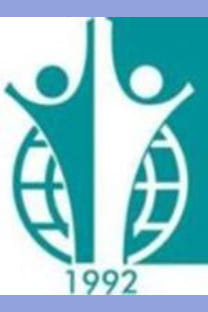KALKINMAYI YENİDEN DÜŞÜNMEK: GÜNCEL TARTIŞMALAR VE SORULAR
RETHINKING DEVELOPMENT: CURRENT ISSUES AND DEBATES
___
- Birleşmiş Milletler (2019). Post-2015 Development Agenda. https://www.unodc.org/unodc/en/about-unodc/post-2015- development-agenda.html (18.09.2019).
- Browne, S. (2014). A Changing World: is the UN development system ready?. Third World Quarterly, 35(10): 1845-1859.
- Calvert, P. (2005). Changing Notions of Development: Bringing the State Back in. J. Haynes (Ed.), Palgrave Advances in Development Studies (pp. 47-64). Houndmills: Palgrave.
- Escobar, A. (1995). Encountering Development, The Making and Unmaking of the Third World. Princeton: Princeton University Press.
- Esteva, G. ve Escobar, A. (2017). Post-Development @ 25: on “being stuck” and moving forward, sideways, backward and otherwise. Third World Quarterly, 38(12): 2559-2572.
- Erbay, E. R. ve Özden, M. (2013). İktisadi Kalkınma Kuramlarına Eleştirel Yaklaşım. Sosyal Bilimler Metinleri, 1: 1-27.
- Ercan, F. (2001). Modernizm, Kapitalizm ve Azgelişmişlik. İstanbul: Bağlam.
- Fatton, Jr. R. (2016). Development and the Outer Periphery: The Logic of Exclusion. A. Cafruny, L. S. Talani ve G. P. Martin (Eds.), The Palgrave Handbook of Critical International Political Economy (pp. 119-137), London: Palgrave.
- Fine, B. (2001). Neither the Washington nor the post-Washington Consensus: An Introduction. B. Fine, C. Lapavitsas ve J. Pincus (Eds.), Development Policy in the Twenty-first Century, Beyond the post-Washington Consensus (pp. 1-28). London: Routledge.
- Frank, A. G. (1966). The development of underdevelopment. Monthly Review, 4-17.
- Gills, B. (2017). The Future of Development from Global Crises to Global Convergence. Forum for Development Studies, 44(1): 155-161.
- Gray, K. ve Gills, B. K. (2016). South-South cooperation and the rise of the Global South. Third World Quarterly, 37(4): 557-574.
- Gosovic, B. (2016). The resurgence of South-South cooperation. Third World Quarterly, 37(4): 733-43.
- Haynes, J. (2005). Introduction. J. Haynes (Ed.), Palgrave Advances in Development Studies (pp. 3-26). Houndmills: Palgrave.
- Hettne, B. (2005). Discourse on Development. J. Haynes (Ed.), Palgrave Advances in Development Studies (pp. 26-46). Houndmills: Palgrave.
- Hettne, B. (2009). Thinking about Development, Development Matters. London: Zed Books.
- Hsu, J. Y. J. (2015). China’s development: a new development paradigm?. Third World Quarterly, 36(9), 1754-1769.
- Hyden, G. (2014). The Ever-Changing Nature of Development Research: The Newest Challenge. Forum for Development Studies, 41(3), 501- 511.
- IMF (2019). World GDP Share. https://www.imf.org/external/datamapper/PPPSH@WEO/OEMDC/A DVEC/WEOWORLD (25.09.2019).
- Keyder, Ç. (2004). Ulusal Kalkınmacılığın İflası. İstanbul: Metis.
- Mittelman, J. H. (2016). Repositioning in global governance: horizontal and vertical shifts amid pliable neoliberalism. Third World Quarterly, 37(4): 665-681.
- Mohanty, C. T. (2003). Feminism without Borders, Decolonizing Theory, Practicing Solidarity. Durham: Duke University Press.
- Muhr, T. (2016). Beyond “BRICS”: ten theses on South-South cooperation in the twenty-first century. Third World Quarterly, 37(4): 630-648.
- Nayyar, D. (2016). BRICS, developing countries and global governance. Third World Quarterly, 37(4): 575-591.
- OECD (2010). Perspectives on Global Development 2010: Shifting Wealth. http://www.oecd.org/dev/pgd/45451514.pdf (17.08.2019)
- OECD (2019). Perspectives on Global Development, Rethinking Development Strategies. https://read.oecdilibrary.org/development/perspectives-on-global-development2019_persp_glob_dev-2019-en#page1 (17.08.2019).
- Oğuz, Ş. (2013). Kurumsalcı Bir Kurgu Olarak kalkınmacı devlet: Tarihsel ve Kuramsal Bir Eleştiri. Amme İdaresi Dergisi, 46(4): 107-128.
- Rapley, J. (2002). Understanding Development, Theory and Practice in the Third World. Colarodo: Lynne Rienner.
- Rodrik, D. (2011). The Globalization Paradox, Why Global Markets, States and Democracy Can’t Coexist. Oxford: Oxford University Press.
- Rodrik, D. (2018). Straight Talk on Trade, Ideas for a Sane World Economy. Princeton: Princeton University Press.
- Ruggie, J. G. (1982). International Regimes, Transactions, and Change: Embedded Liberalism in the Postwar Economic Order. International Organization, 36(2): 379-415.
- Saad-Filho, A. (2014). The “Rise of the South”: Global Convergence at Last?. New Political Economy, 19(4): 578-600.
- Sachs, W. (1992). Introduction. W. Sachs (Ed.), The Development Dictionary, A Guide to Knowledge as Power (pp. 1-16). London: Zed Books.
- Scholte, J. A. ve Söderbaum, F. (2017). A Changing Global Development Agenda. Forum for Development Studies, 44(1): 1-12.
- Stiglitz, J. (1998). More Instruments and Broader Goals: Moving Toward the Post-Washington Consensus. The 1998 WIDER Annual Lecture Helsinki.
- Şenses, F. (2003). Kalkınma İktisadı, Yükselişi ve Gerilemesi. Ankara: İletişim.
- Şenses, F. (2004). Neoliberal Küreselleşme Kalkınma için bir Fırsat mı, Engel mi?. ERC Working Paper in Economics. https://core.ac.uk/download/pdf/7086758.pdf (18.07.2019).
- Tatlıdil, H. ve Ünal, E. (2010). Türkiye İçin Sürdürülebilir Kalkınma Skoru Geliştirilmesi, TİSK Akademi, 1: 45-63.
- Todaro, M. P. ve Smith, S. C. (2003). Economic Development. Pearson Education.
- Tutulmaz, O. (2012). Sürdürülebilir Kalkınma: Sürdürülebilirlik İçin Bir Çözüm Vizyonu. Gaziantep Üniversitesi Sosyal Bilimler Dergisi, 11(3): 601-626.
- Türkay, M. (2005). 1945’den 2000’lere Söylem ve Gerçeklik Arasında “Kalkınma”nın Halleri. Ekonomik Yaklaşım, 16(55): 31-42.
- UNESCO (2010). World Social Science Report: Knowledge Divides. https://unesdoc.unesco.org/ark:/48223/pf0000188333 (15.07.2019).
- Wolfe, R. (2015). First Diagnose, Then Treat: What Ails the Doha Round. World Trade Review, 14(1): 7-28.
- Yavilioğlu, C. (2002). Kalkınmanın Anlambilimsel Tarihi ve Kavramsal Kökenleri. C. Ü. İktisadi ve İdari Bilimler Dergisi, 3(1): 59-77.
- Yeldan, E. (2002). Neoliberal Küreselleşme İdeolojisinin Kalkınma Söylemi Üzerine Değerlendirmeler. Praksis, 7: 19-34.
- Ziai, A. (2017a).”I am not a Post-Developmentalist, but…” The influence of Post-Development on development studies. Third World Quarterly, 38(12): 2719-2734.
- Ziai, A. (2017b). Post-development 25 years after The Development Dictionary. Third World Quarterly, 38(12): 2547-2558.
- ISSN: 1303-0027
- Yayın Aralığı: Yılda 2 Sayı
- Başlangıç: 2001
- Yayıncı: Dokuz Eylül Üniv. İşletme Fak.
ÖRGÜTSEL ÖĞRENME YETENEĞİ: AMPİRİK ARAŞTIRMALAR ÜZERİNE BİR İNCELEME
Gizem YILMAZ KOZCU, Ömür Neczan TİMURCANDAY ÖZMEN
MEASURING TOTAL PRODUCTIVITY OF TURKISH MANUFACTURING INDUSTRY BASED ON ACCOUNTING DATA
İNANÇ TURİZMİ KAPSAMINDA KADINLARIN BEKLENTİ VE DENEYİMLERİNİN ANALİZİ: BİRGİVİ TÜRBESİ ÖRNEĞİ
Havva GÖZGEÇ, Ebru GÜNLÜ KÜÇÜKALTAN
DEĞİŞİM ALGISI: OTEL İŞLETMELERİ ÖRNEĞİ
SOSYAL BİLİMLER ALANINDA ÇALIŞAN AKADEMİSYENLERİN YETKİNLİKLERİNİ BELİRLEMEYE YÖNELİK BİR ARAŞTIRMA
Olca SÜRGEVİL, Buket KILIÇ, Ebru TOLAY
KESİTSEL ANOMALİLERİNİN BORSA İSTANBUL’DA TEST EDİLMESİ
Zahir DADAY, Sevinç GÜLER ÖZÇALIK
İrfan AKKOÇ, Aysun TÜRE YILMAZ
Aşkın ÖZDAĞOĞLU, Murat Kemal KELEŞ, Fatma YÖRÜK EREN
HEMŞİRELERDE ALGILANAN ÖRGÜTSEL DESTEĞİN İŞ PERFORMANSINA ETKİSİNDE GÜVENİN ARACILIK ROLÜ
İrfan AKKOÇ, Aysun TÜRE YILMAZ
TÜRK İMALAT SANAYİ TOPLAM VERİMLİLİĞİNİN MUHASEBE VERİLERİNE DAYALI OLARAK ÖLÇÜLMESİ
